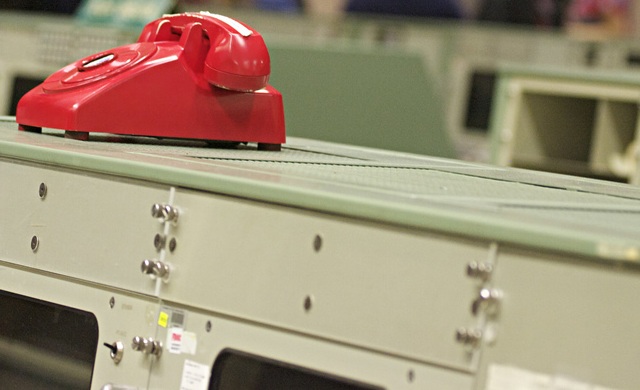The impending IPO of the Direct Line Group may be the biggest buzz around London since the Olympics. In an attempt to gain some insight about what may really happen, I took a stroll over to 221B Baker Street to visit a friend of mine, a certain Mr. Holmes, who has proven rather proficient at seeing things that others might have missed. He had already been studying the case, not surprisingly, and was cogitating over several clues. His reasoning, as usual, flowed against the tide.

Clue Number One – An IPO is not the same as a GBO
I assign this the number one, not necessarily because of importance, but more so because he told me that it was “ quite elementary.” I must confess, however, that, at least at first, I had no idea what he was talking about. I also confess that this is not the first time I have felt that way. Dispensing with acronyms for the sake of my comprehension, he stated that “Initial Public Offerings” are not the same as “Government Bailout Ordered.” Given that the decision to attempt to sell off 25% of the Direct Line Group is not strictly an attempt to raise capital as in customary transactions of the kind, it is, therefore, an attempt to be in compliance with the government order to sell off a majority interest in the company by the end of 2013 and to divest it completely by 2014. Which leads to . . .
Clue Number Two – This IPO is an AOLR
At this point I had to ask Mr. Holmes once again to de-acronymise. I could sense his irritation at my creation of a new word to counter his creation of a new acronym. “Elementary, my boy,” he said, “Act of Last Resort.” (I hate it when he says ‘elementary’.) The IPO is being floated because attempts to divest the group in its entirety thus far have sunk. IPO’s have not done well in the past several years, so one might deduce that there is nothing about this offering that makes it any more attractive. Investors, understanding the situation, may likely see themselves being able to take advantage and expect to pay a bargain basement price. Speaking of which, that leads us to . . .
Clue Number Three – The Appearance of RITB
I hesitated to ask about the acronym. I really did not want to suffer under a demeaning scowl and hear ‘elementary’ again. Fortunately, he explained without my coaxing that he was referring to Retail Incentives To Buy. Hargreaves Lansdown is offering private investors a chance to win one of 10 iPads. The Share Centre is offering John Lewis vouchers. (This idea had originally excited Holmes as he thought that it was an offer to private investigators. He cooled to the idea once he realized it was private investors.) “The incentivising idea is like putting lipstick on a sow in hopes of making her look more attractive. Lipstick is not necessary if you’ve got an attractive pig.” Even RBS is subtly incentivizing as well, promising a dividend payout of 50% or more of after tax profit. Despite the marketing spin, these are . . . (I could tell that his pregnant pause was due to deliberation of whether or not to say “AOD” or “Acts of Desperation.” He chose the latter. Apparently, he was growing weary of explaining with a leading ‘elementary’ as well.)
Clue Number Four – The IPO comes in the midst of Cost Cutting Measures
Direct Line has just announced 900 job cuts as part of a continuing £100 million cost reduction and elimination plan. One source has already predicted additional job cuts will be necessary to keep the company in the black. Holmes felt that cutting 900 people who are part of a staff that CEO Paul Geddes had described as having “worked hard in recent years to transform the business,” was bordering on obscene.
Clue Number Five – The Case of the Golden Handcuffs
He was really beginning to sound like the Holmes of old now. He recalled a previous case where company executives were given golden handcuffs, a reference to the top dogs being paid exorbitant amounts of money and options to “handcuff” them to their desks for several years past the divestiture date. Holmes had been sniffing around and he had caught wind of a rumor that Geddes and CFO John Reizenstein might be cuffed with something like £3 million in company shares. He deduced that at least 900 people (see Clue Number Four) or more would think the action just a bit cheeky.
Clue Number Six – The IPO could be snuffed out by a PE offer
(At least I knew that PE means Private Equity.) Holmes had stumbled onto some backroom conversations that there was still a 50-50 chance of a private equity offer coming through before the IPO is actually launched latter in the year. That being the case, RBS and Direct Line will want to keep their options open and take a more certain PE offer, if at all reasonable. In that case the IPO will never happen.
The Conclusion of the Matter
Lighting his pipe, Holmes said, “It all sounds a bit shaky, but it’s too soon to come to a conclusion. We’re going to need a bit more time and a few more clues. An announcement is expected tomorrow explaining the parameters of the sale, which won’t happen until later this year. Perhaps we’ll have more clues then.”
He motioned, indicating that our time was over and that I should be on my way. As I walked away into the dark and almost liquid air, I realized that Holmes didn’t have the foggiest. Neither did I.


 Hot Features
Hot Features













